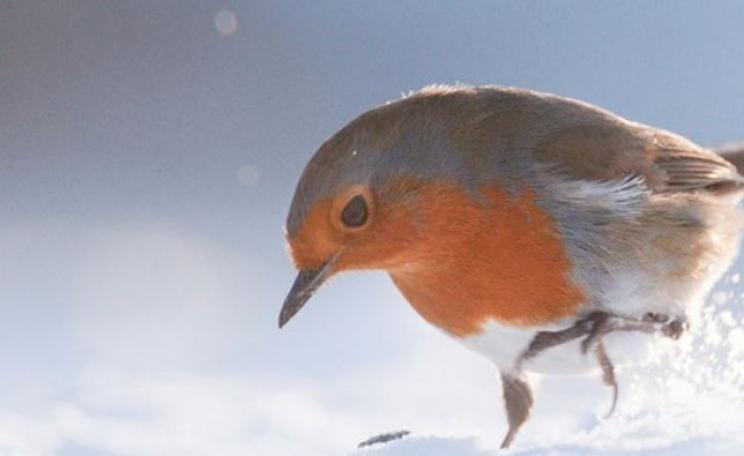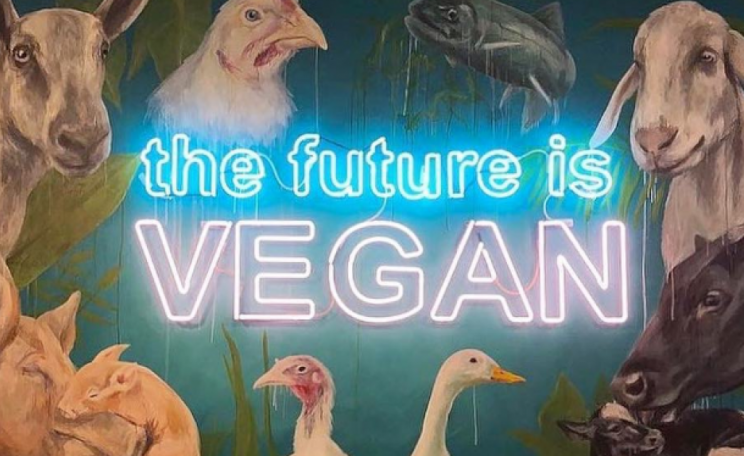Every day is a lockdown for captive animals.
We are all desperately seeking something to give us hope in these dark and unprecedented times we find ourselves in. Non-human animals often lift our spirits and get us through difficult times.
What could be more hopeful than the story of nature being given a chance to breathe again, whilst human activities are curtailed by the global pandemic and lockdown response?
Enter the heart-warming tales going viral on social media – elephants getting drunk on corn wine and passing out in a tea garden, swans returning to Venice and even dolphins joining them, having been spotted in the now clear canals.
Transmission
The trouble is most of these stories aren’t real. The dolphins were actually filmed hundreds of miles away in Sardinia, swans are regularly found in parts of Venice and no one knows where the elephant pictures came from, although a Chinese news station recently debunked the post.
These fake news stories may have started life as clickbait to generate advertising revenue, taking advantage of us animal lovers in need of hope.
Despite not being true, the success of these stories shows that we do care greatly about the natural world and the non-human animals that inhabit it.
The pandemic has had a catastrophic impact upon the human world. At the time of publication, there have been 4.3 million officially confirmed coronavirus cases globally, with over 288,000 deaths. We know the real cost has been even higher.
The almost uniform response to the crisis has been lockdown – the severe restriction of movement and freedoms, designed to limit human interaction and subsequently decrease viral transmission.
Lost
This is essential and protects the most vulnerable of our citizens, however, it does not come without harm, as us humans are a very social species.
Prolonged periods in these unnatural conditions have led to warnings of an increase in anxiety, loneliness, depression, poverty and destitution.
It is for these reasons that some nations are already easing lockdown restrictions and are planning on trying to return to pre-pandemic conditions, despite the virus not being anywhere near under control globally.
Whilst the impact of the pandemic on humans is well known, what impact has there been on non-human animals, given that we know that dolphins aren’t frequenting Venetian canals and elephants aren’t having wild parties in China?
Every day is a lockdown for captive animals.
Tomorrow, Wednesday 13 May, is Endangered Species Day, where environmentalists try to increase awareness of the plight of the many species at risk of being lost forever.
Sentient
They may have some good news for us this year though, as the current limits on human activities has benefited some wild species. Leatherback sea turtles in Florida are in for a bumper year, as the lack of humans and harmful waste on the beaches means conservationists have reported many more nests than average.
Last year, the southern African country of Botswana overturned a ban on commercial elephant hunting, however travel restrictions imposed on travelers from the US, UK, Italy and Spain have all but ended the hunting season, as nearly all of the foreign trophy hunters are now banned from entering the country. There is hope after all then, a silver-lining around the vast clouds of 2020.
For animals living in captivity, things don’t look quite so rosy. Zoos around the world are on the brink of collapse as their main source of income – visitors – has completely vanished. Zoos, unlike many businesses, cannot reduce costs drastically. The animals still need feeding and housing temperatures must be maintained.
Many zoos are now reliant upon food and financial donations to keep the animals alive, however, it is unclear how long this can continue for.
A zoo director in Northern Germany has admitted that some animals may need to be fed to each other if the zoo is to survive. How they choose which animals live and which will die will be decided by pure economics, which is painfully arbitrary for sentient creatures.
Voiceless
Other zoos are reporting that animals are missing the human interaction that they get from visitors. Artificial interaction with humans through glass walls can only ever be a pale substitute for being in family units, troops, prides or herds, socially mixing freely with members of their own species.
After all, it is not just humans who are social animals – many other species enjoy a rich social life, with friends, hierarchies, and complex relationships with other creatures. Every day is a lockdown for captive animals.
The pandemic has thrust humanity’s relationship with nature into the forefront of public consciousness. Perhaps coincidentally, Tiger King has become the next hit Netflix show at the same time.
At the heart of the programme is the moral debate over ‘exotic animal’ ownership, however, this quickly becomes overshadowed by the melodrama, narcissism, and increasingly unbelievable actions of the human subjects.
The fact that severe cases of animal abuse and exploitation are almost completely ignored is tragic but not unsurprising – once again, non-human animals remain voiceless.
Reflection
For most of the 70 billion non-human animals kept in captivity whilst being farmed for food, life is a permanent state of fear, suffering and restriction.
Our lockdown pain may be unprecedented, but for farmed animals it is not. Their suffering far predates this pandemic and will continue beyond it unless something in our collective psyche changes.
Nobody knows what the next few months will look like, let alone the next few years, but we are thinking about how we might move forward and make better choices as a species.
Should governments be providing fast internet connections as an essential service? Perhaps we don’t have to make millions of unnecessary car journeys to and from work every day? Maybe we should place more value on the carers in our society?
One thing seems certain. We need to reflect carefully on our relationship with other animals and the fragile ecosystems that we all share.
Do we want to live in a future where animals are kept in captivity for entertainment, where profit takes precedence over sentience and where the suffering of billions of our fellow Earthly inhabitants is accepted as normal? Or do we want to live in a future where we value all animals equally?
The time for this collective reflection is now.
This author
Mark Banahan is the Campaigns Manager at The Vegan Society. He works to create a better world for non-human animals and promote the benefits of veganism. If you would like to find out more about veganism, check out The Vegan Society’s website here. Mark tweets at @MarkBanahan.







